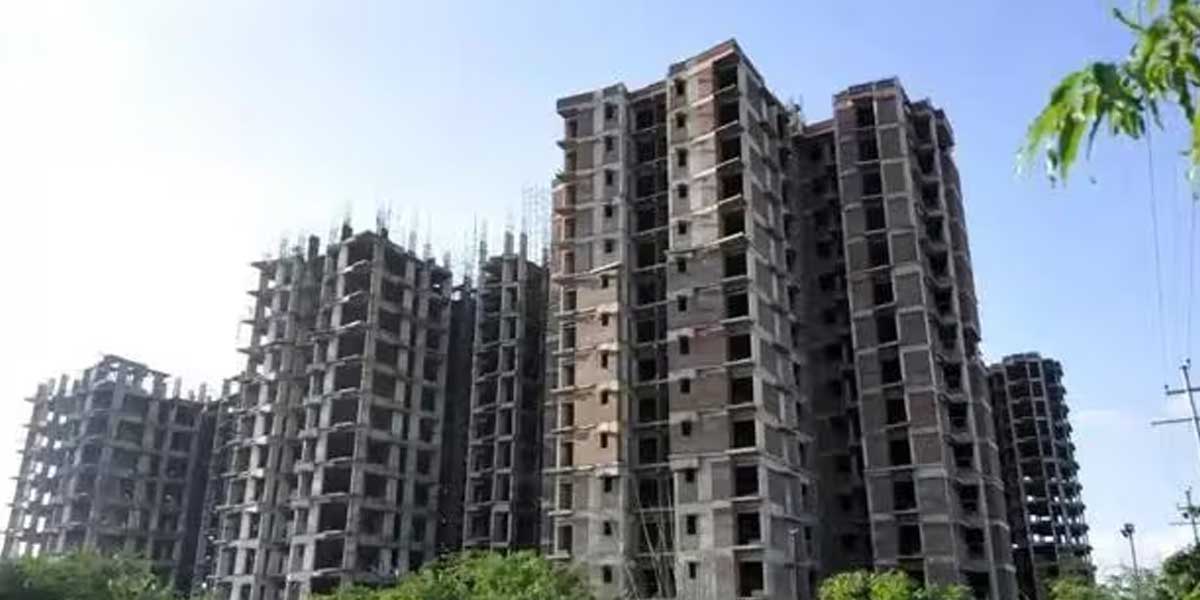As the year 2023 draws to a close, we reflect on the remarkable journey of the real estate sector, a testament to resilience and adaptability amidst unprecedented challenges. The global pandemic has left an indelible mark on the industry. Yet, in a surprising turn of events, the sector displayed remarkable resilience, staging a robust recovery and posting impressive growth numbers. The luxury estate market witnessed a 130 per cent surge in high-end property sales during the first half of the year. Moreover, Mumbai's real estate market, renowned for its upscale offerings, saw an average daily launch of nearly 150 property units in the same period.
As we delve deeper into the nuances, let us explore the key trends that defined the luxury residential landscape in 2023.
Sustainable Living: In 2023, sustainable living emerged as a cornerstone of luxury residences, reflecting a growing awareness of ecological challenges. The Indian Green Building Council reported a significant increase in green building projects, signalling a shift in homebuyers' preferences towards sustainable designs, energy-efficient technologies, and eco-friendly features. Today?s discerning individuals prioritise homes that seamlessly blend opulence with environmental responsibility, incorporating cutting-edge features such as solar panels and smart home systems. The younger generation, in particular, exhibits a strong inclination towards sustainable luxury living, signifying a broader commitment to balance luxury with ecological responsibility.
Bigger and Better Homes: The post-pandemic era witnessed a surge in demand for larger and more luxurious residences. Homes now feature soaring ceilings, expansive windows with breathtaking views, and spacious living areas that redefine the concept of roominess. According to a CII-Anarock report, 3BHK configurations gained favour among 42 per cent of participants, closely followed by 2BHKs at 40 per cent. Additionally, 12 per cent opted for 1BHKs, and 6 per cent sought residences exceeding the 3BHK configuration. Spacious balconies have also become a significant criterion, reflecting evolving preferences driven by the hybrid and remote work culture. Buyers increasingly prioritise homes that cater to both professional and personal needs, while multi-generational living experiences resurgence.
Intelligent Living Spaces: Homes have evolved into intelligent ecosystems, seamlessly blending advanced technology with sophisticated design to create unparalleled living experiences. State-of-the-art security systems, personalised climate control, and comprehensive home automation have become integral components of smart residences. Residents can effortlessly interact with their living spaces through intuitive interfaces, enhancing convenience, security, efficiency, and customisation. Modern living extends beyond aesthetics; it ensures an environment that responds to residents' needs and preferences.
Top-Notch Amenities: Grade-A developers introduced an array of top-notch amenities in 2023, including state-of-the-art fitness centres, wellness spas, and private concierge services. Rooftop lounges with panoramic views, infinity pools, and private theatres redefine luxury living, setting new benchmarks for comfort and indulgence.
NRIs Investing in Luxury Homes: Non-Resident Indians (NRIs) strategically invested in high-end residential properties in 2023. Mumbai emerged as a focal point for NRI investments, with the NRI Real Estate report projecting that these investments are poised to reach 17 per cent of overall primary sales in India. NRIs are drawn to luxury properties for their stability, potential for attractive returns, and alignment with global lifestyles.
Shaping the Future in 2024: As we bid farewell to 2023, the trends of the year are expected to shape luxury real estate in 2024. Demand for larger floor plans, sustainability, intelligent living, and top-notch amenities will continue to rise. Micro markets, including Chembur, Powai-Chandivali, and Kandivali-Borivali, are expected to gain prominence, highlighting the potential of suburbs in shaping the real estate landscape. The demand for experiential living will drive innovation in architectural and interior design, emphasising wellness amenities and outdoor spaces. The definition of prime locations may evolve, emphasising properties that balance urban conveniences with green settings.
As we step into 2024, the luxury real estate sector stands at the cusp of transformation, driven by evolving preferences, sustainability, and a commitment to providing unparalleled living experiences. The future holds promise, and we eagerly anticipate the next chapter in luxury real estate's journey.
The article is authored Ashwin Sheth, CMD, Ashwin Sheth Group.





















